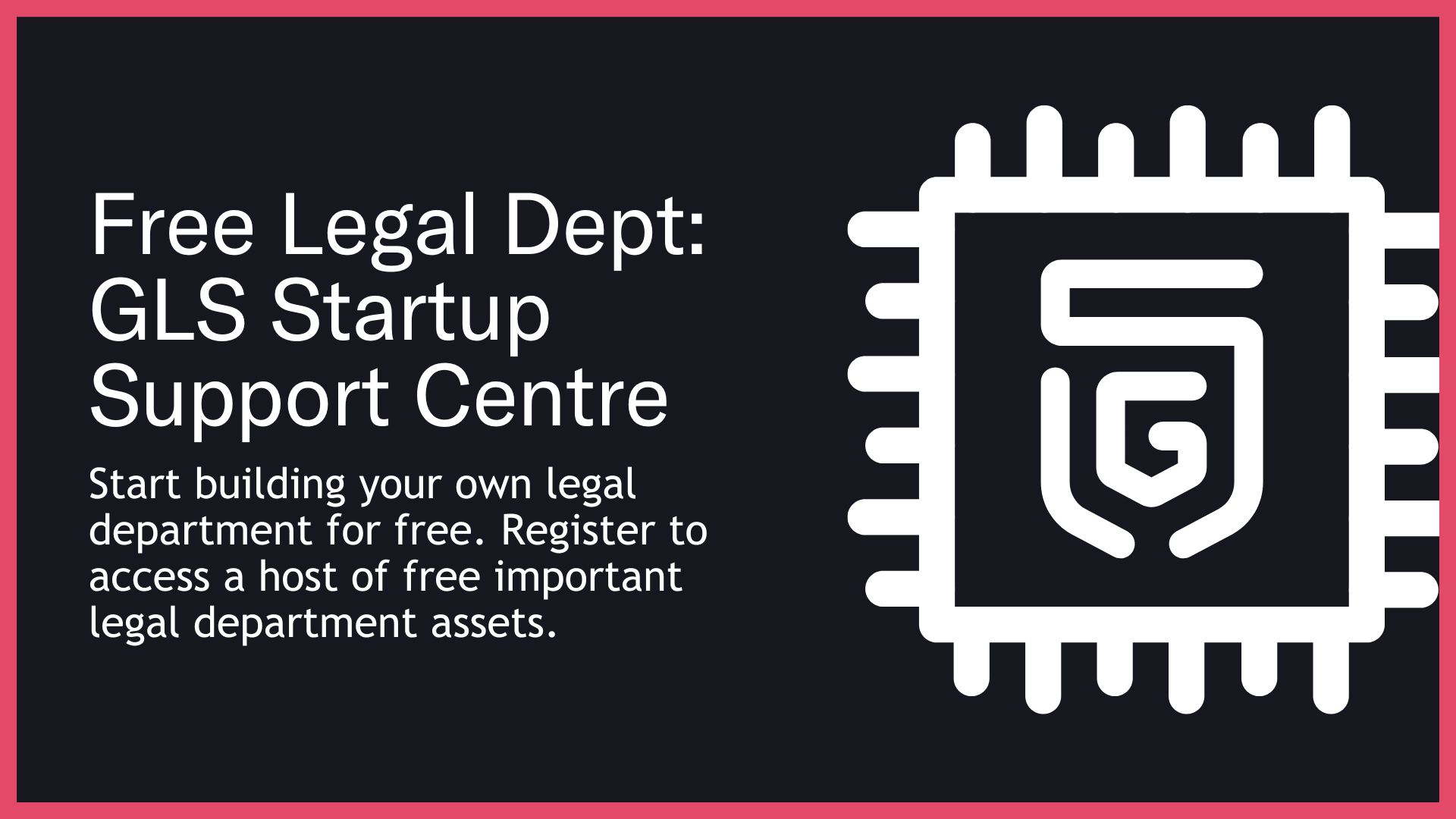GLS Legal Support Centre
Legal Made Easy For Startups
Back
Key Registrations
Introduction
“Incorporation is just the beginning - the real test is whether you’ve secured every approval your business needs to operate legally.” – Matt Glynn
When we talk about Key Approvals, we mean any notifications, approvals, licences, consents, certifications and/or permissions that your business might need to start, continue, or expand operations.
These can include everything from tax registrations and industry-specific licences to health and safety certifications and intellectual property registrations. This stage ensures you can trade lawfully, protect your brand, and access critical infrastructure like banking, payment processing, and government support.
Fail to get this right, and you risk fines, forced shutdowns, or even personal liability - all before your start-up has a chance to hit its stride.
Why Getting This Right Really Matters
The Key Approvals stage is crucial to your start-up journey because it ensures:
◼️Legal Trading Status – You cannot lawfully operate without certain approvals.
◼️Tax Compliance – Proper registrations avoid penalties and enable deductions.
◼️Brand Protection – Early IP registration stops competitors copying you.
◼️Funding Eligibility – Grants, investors, and lenders often require proof of compliance.
◼️Operational Readiness – Many approvals are essential for opening bank accounts, hiring staff, or signing contracts.
◼️Customer Trust – Being fully approved signals professionalism and credibility.
◼️Regulatory Access – Enables participation in government tenders or regulated markets.
◼️International Expansion – Prepares you for overseas compliance requirements.
Consequences of Not Addressing This Issue
Legal Implications
◼️Regulatory Breaches – Operating without required approvals can lead to fines, closure orders, or even criminal prosecution.
◼️Enforceability Risks – Contracts made before proper approvals may be unenforceable.
Founder Relationship Issues
◼️Liability Disputes – Unclear responsibility for securing approvals can spark founder conflict.
◼️Equity Conflicts – Delayed share allotments or compliance oversights cause future disputes.
Commercial Implications
◼️Funding Barriers – Investors won’t commit without compliance certainty.
◼️Missed Opportunities – Disqualification from grants, tenders, or supply chains.
Operational Implications
◼️Banking Delays – No corporate bank account means stalled operations.
◼️Trading Interruptions – Expired or missing approvals can halt business activity.
Business Valuation Issues
◼️Lower Valuation – Poor compliance signals high risk to investors or buyers.
◼️Sale Obstacles – Missing or defective approvals delay or derail acquisitions.
What You Should Be Doing
1. Identify All Required Approvals
◼️Company incorporation or business name registration.
◼️Tax IDs (e.g., GST/VAT) and relevant regulatory notifications.
◼️Sector-specific licences, permits, or consents.
2. Secure IP Protection Early
◼️File for trademarks, patents, or designs where applicable.
3. Meet Employment Compliance Requirements
◼️Register for payroll, employee contributions, and workplace insurance.
4. Consider International Approvals
◼️Explore cross-border licences and IP protections if expanding overseas.
5. Implement a Renewal System
◼️Use a compliance calendar to track expiry and renewal deadlines.
The above are just a few of the steps you can consider taking. There are many more things that need to be done to ensure the associated risks are effectively and pragmatically dealt with.
How These Risks Can Play Out – Case Studies
Case Study 1: The Café That Couldn’t Open
A start-up leased a prime location, hired staff, and stocked inventory - but failed to secure its food service licence. Approval delays cost two months of rent without revenue, burning through cash reserves.
Case Study 2: The Trademark Takedown
A fashion brand launched without registering its trademark. A competitor filed first and forced them to rebrand, losing brand recognition and marketing spend.
Case Study 3: The Investor Who Walked
A SaaS start-up impressed a VC with its product, but due diligence revealed overdue compliance filings and missing tax approvals. The deal collapsed overnight.
Final Thoughts
Speed is important for start-ups - but skipping Key Approvals is not lean, it’s reckless. The right approvals secure your right to trade, protect your assets, and build the credibility you need with customers, partners, and investors.
How GLS Can Help You
GLS can help you identify, secure, and maintain all Key Approvals your start-up needs, including:
◼️Business incorporation and name registration.
◼️GST/VAT and tax registrations.
◼️Industry-specific licences and permits.
◼️IP filings for trademarks, patents, and designs.
◼️Employment-related registrations and compliance.
◼️International approval strategies for market expansion.
Useful GLS Resources for Start-Ups:
◼️GLS Start Up Centre
◼️GLS Knowledge Hub
◼️GLS Support Plan
◼️GLS Legal On Call™ – Free Trial
◼️Book a Complimentary Consultation
◼️GLS Start Up Clinic – join our next pro bono legal clinic.

